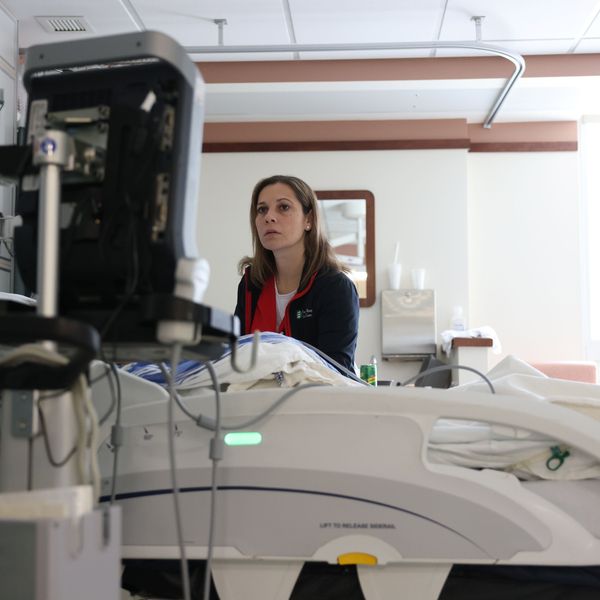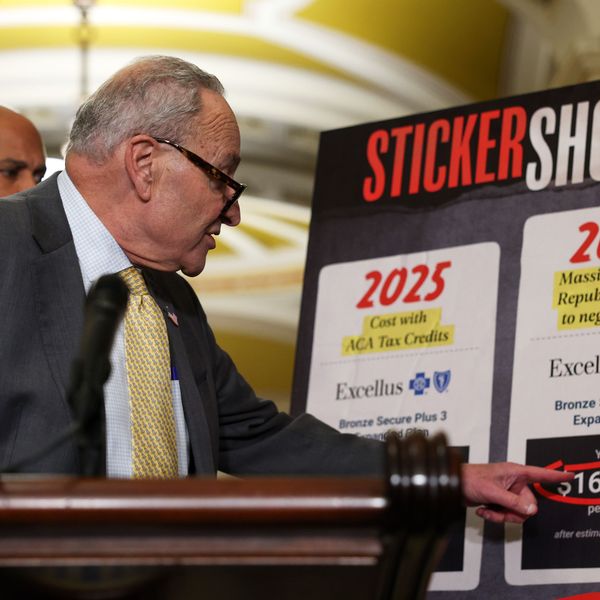An unexpected medical bill or a dip in the stock market would be all it took to send two-thirds of Americans into financial distress, according to a new poll that finds lingering lack of confidence in the U.S. economy.
Despite reports of falling unemployment, growing wages, and rising consumer confidence, a full 57 percent of respondents to the Associated Press-NORC Center for Public Affairs Research survey describe the national economy as poor. Only 22 percent of people say the economy has mostly or completely recovered from the Great Recession.
And while 66 percent of Americans describe their current financial situation as "good"--suggesting they are able to pay their regular bills, go out to eat more, and think about buying a new car or house--the picture is decidedly "precarious," as the Associated Press puts it.
"Even though there are signs that the economy has improved in recent years, a lot of people are not feeling that the recovery has reached them," said Trevor Tompson, director of The AP-NORC Center. "There is evidence of optimism among the more affluent, but two-thirds of Americans would have trouble immediately paying an unanticipated bill of $1,000."
Indeed, according to the AP, "these financial difficulties span all income levels":
Seventy-five percent of people in households making less than $50,000 a year would have difficulty coming up with $1,000 to cover an unexpected bill. But when income rose to between $50,000 and $100,000, the difficulty decreased only modestly to 67 percent.
Even for the country's wealthiest 20 percent -- households making more than $100,000 a year -- 38 percent say they would have at least some difficulty coming up with $1,000.
"The more we learn about the balance sheets of Americans, it becomes quite alarming," Caroline Ratcliffe, a senior fellow at the Urban Institute focusing on poverty and emergency savings issues, told the AP.
What's more, most employed Americans have not seen a salary increase in recent years; less than a third have confidence they would be able to find equal or better employment if they left their current position; and few workers expect to have enough savings to retire on their own timetable.
"It's just real shaky right now," said Dorothy Mszanski, 60, a former steelworker who had to retire on disability, to the AP. "It's like nobody can figure out what to do."
The People's Budget, released earlier this year by the Congressional Progressive Caucus (CPC), spoke directly to this unease, aiming to fix "an economy that, for too long, has failed to provide the opportunities American families need to get ahead."
"Despite their skills and work ethic," the CPC said in a statement at the time, "most American workers and families are so financially strapped from increasing income inequality that their paychecks barely cover basic necessities."
In its analysis of the proposal, the Economic Policy Institute declared: "The People's Budget aims to improve the economic well-being of low- and middle-income families by finally closing the persistent jobs gap that has plagued the U.S. economy since the Great Recession began."

